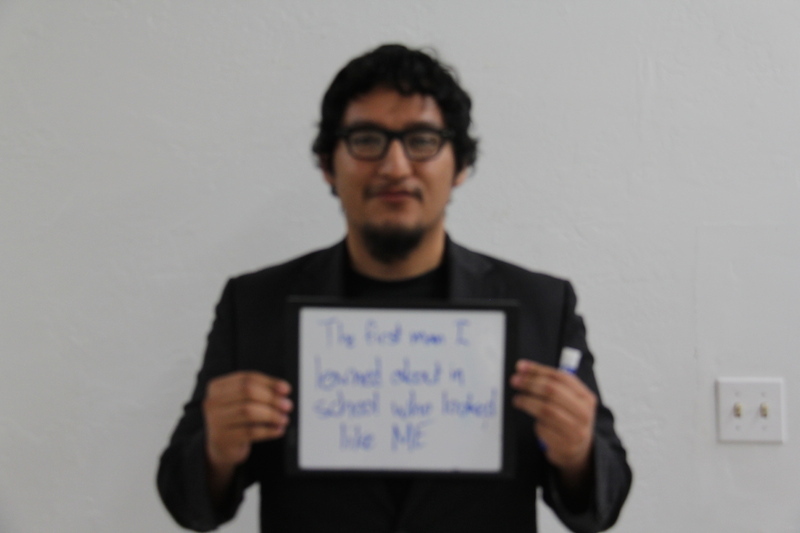After napping for almost two-and-a-half hours on the press bus, I woke up to find this outside my window:

As we arrived at Forty Acres, the location of the premiere, loads of people walked off buses waving red flags and chanting "¡SI SE PUEDE!"
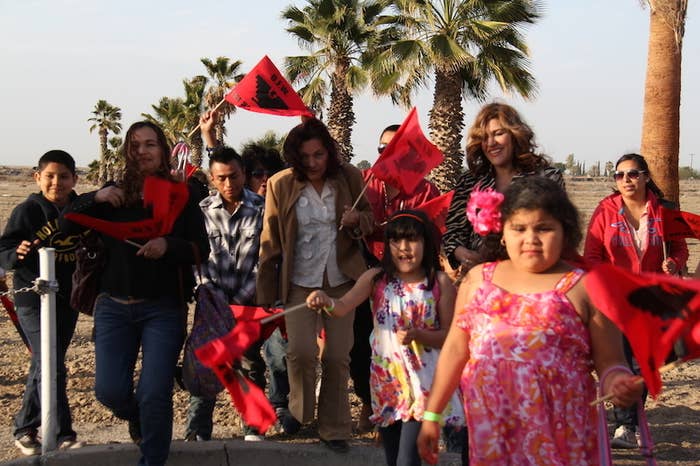
La Campesina 92.5 FM played some old-school Banda music.
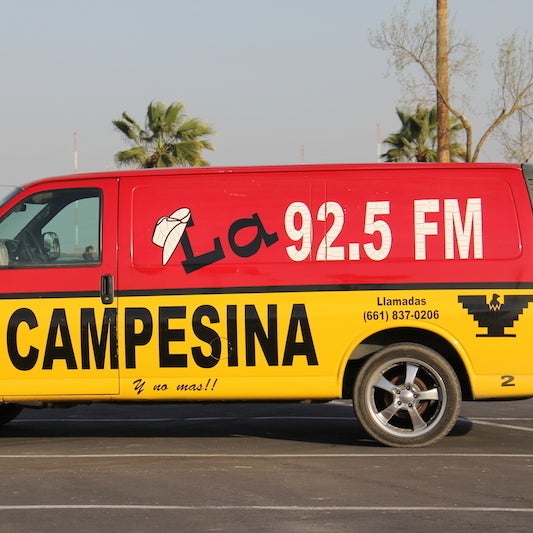
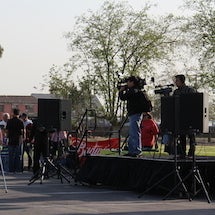
The DJ encouraged people to dance, but no one really took to the dance floor. However, the general feeling of the people in attendance was one of excitement. Between the anticipation of seeing actor Diego Luna, watching a film about their struggle, or getting a taste of the free food, there was a fun vibe in the air.
"Everybody, the food is ready!"
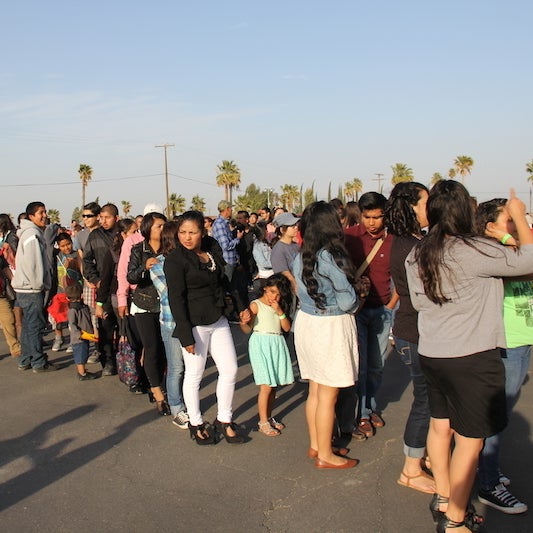
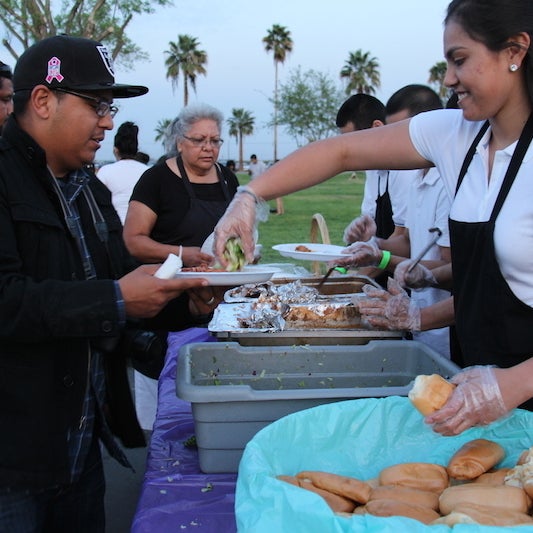
Free food was served. Wait, no. It was even better: Free MEXICAN food was served.
As there was still time before the screening, I embarked on a mini-tour of Forty Acres, the heart of Chavez's farm worker movement.
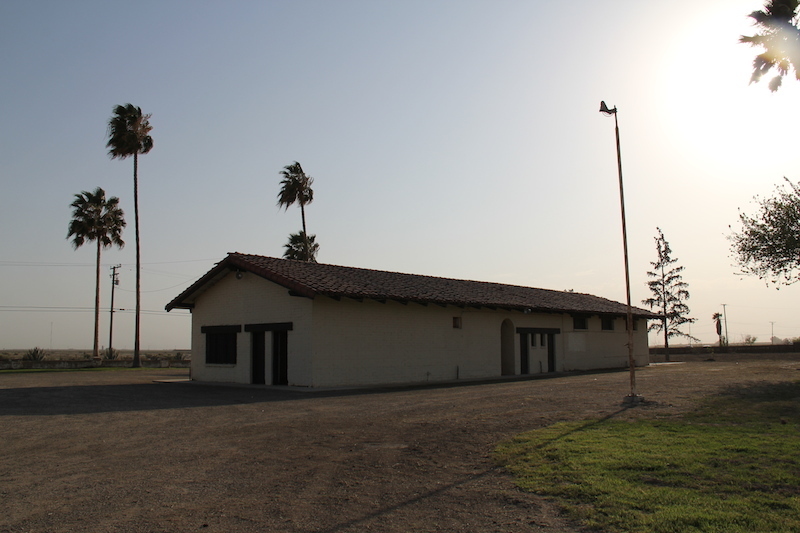
This was the room where Chavez remained for his entire 25-day fast.
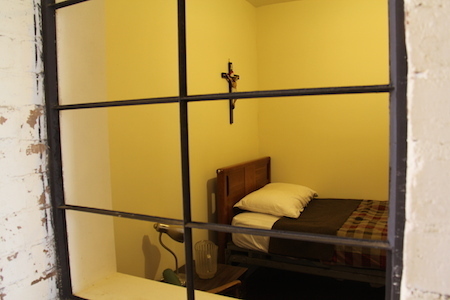
This was where the farm workers attended mass.
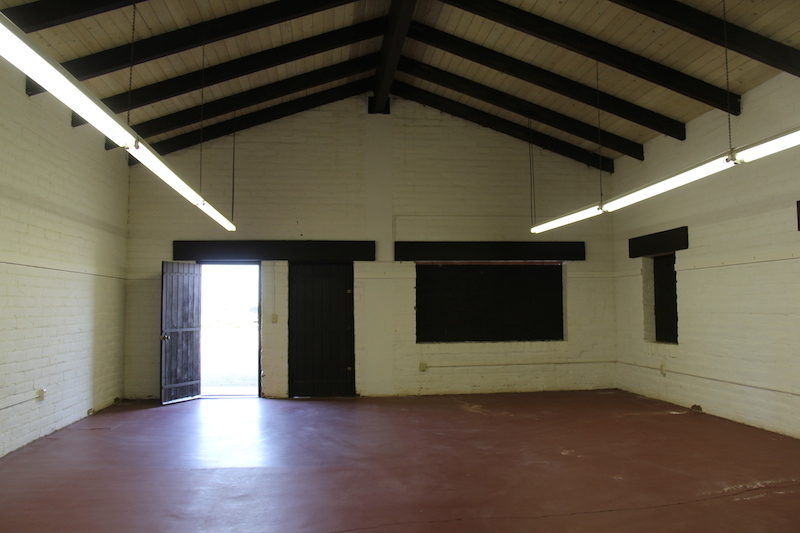
And finally, this was the room where UFW signed the historic contracts that would affect the lives of more than 70,000 farm workers and their families in 1970.
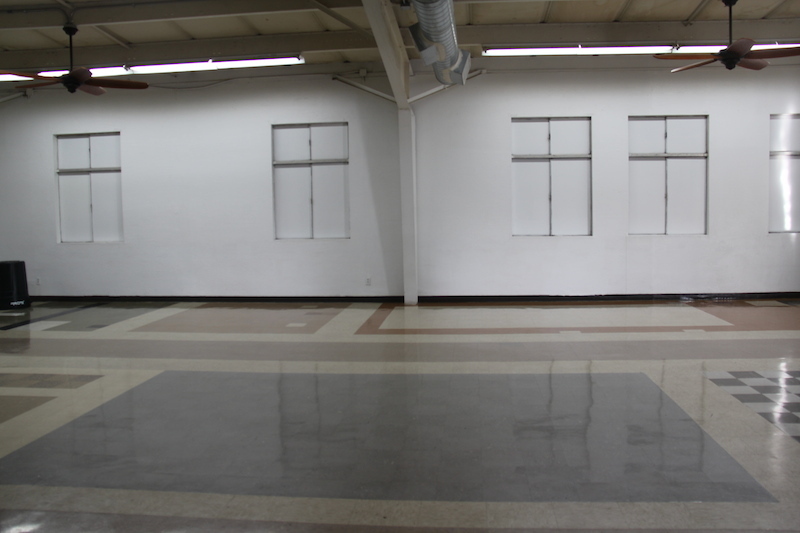
I came across Josefina Flores, who joined Chavez's farm worker movement when she was 26 back in 1965. She told me an interesting story:
"Back in my day, mijito, women had to fight for their right to use a proper toilet."
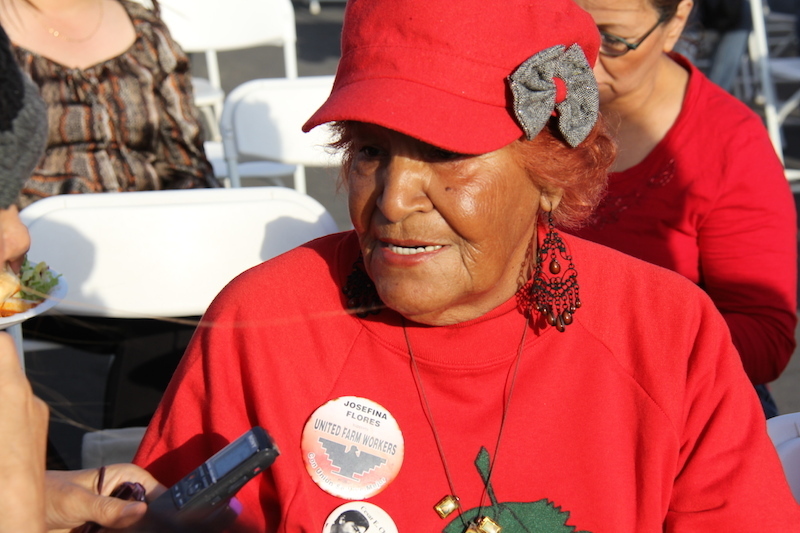
"Being part of a union is more than protecting your benefits," Flores said. "It's about protecting your dignity and the dignity of your family."
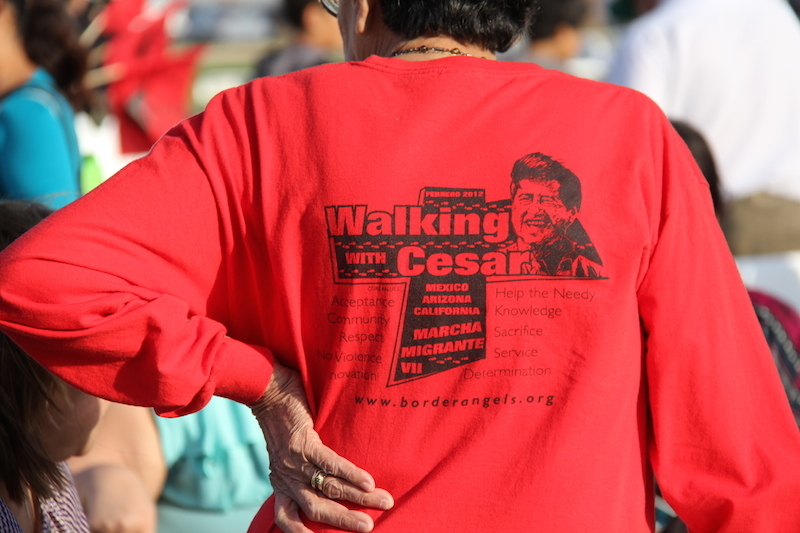
I asked people to write on a whiteboard what Chavez meant to them. Here were some of their responses.
"For me, Chavez was a farm worker who helped us fight for our benefits." — Luis, Farm Worker
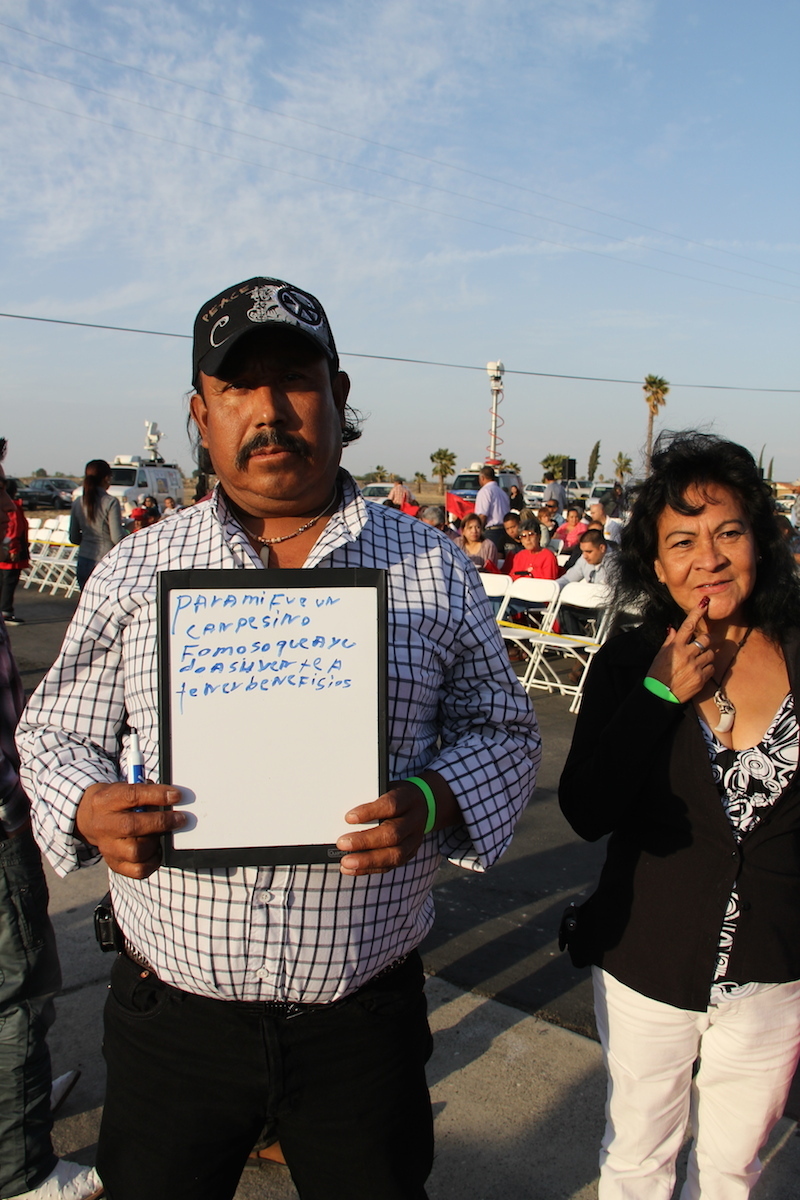
"Leader to all farm workers." — Valentina, Farm Worker
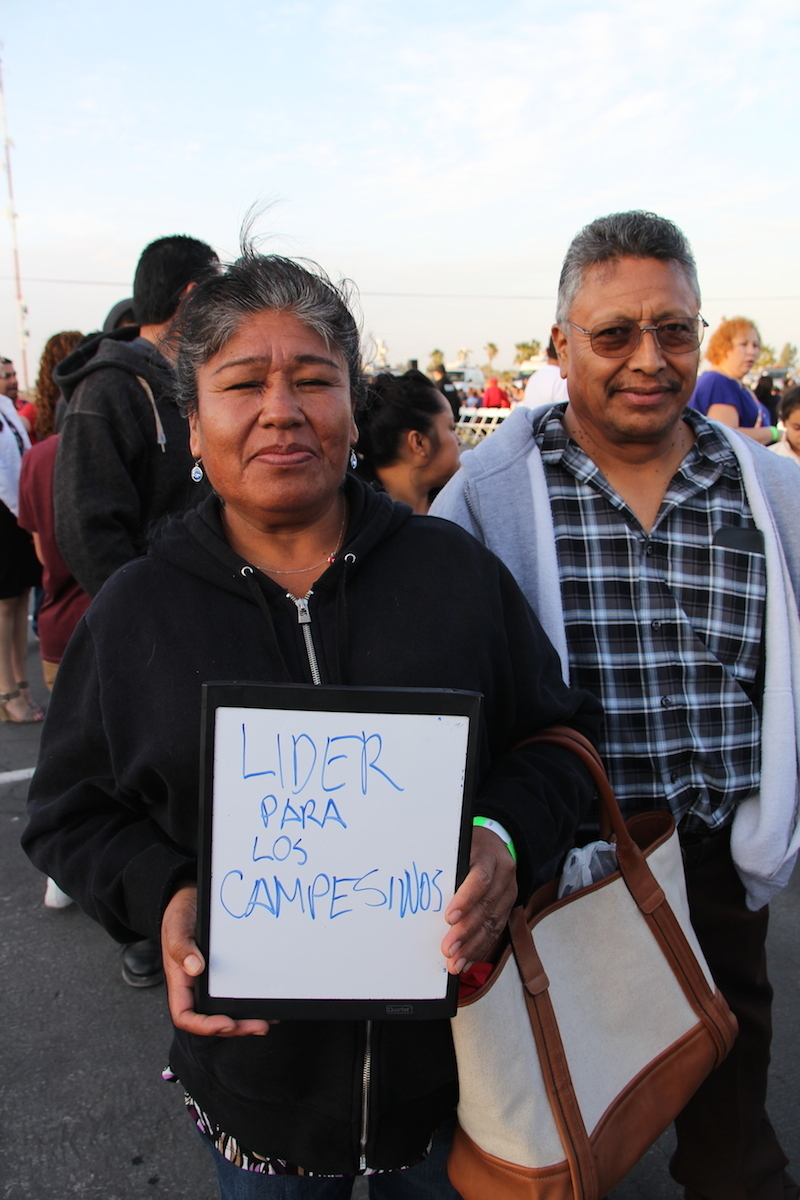
"Motivation to me, because he fought for Mexicans' rights and never gave up. It means so much because without him, I wouldn't be living in a house or eating." — Andrea, 15
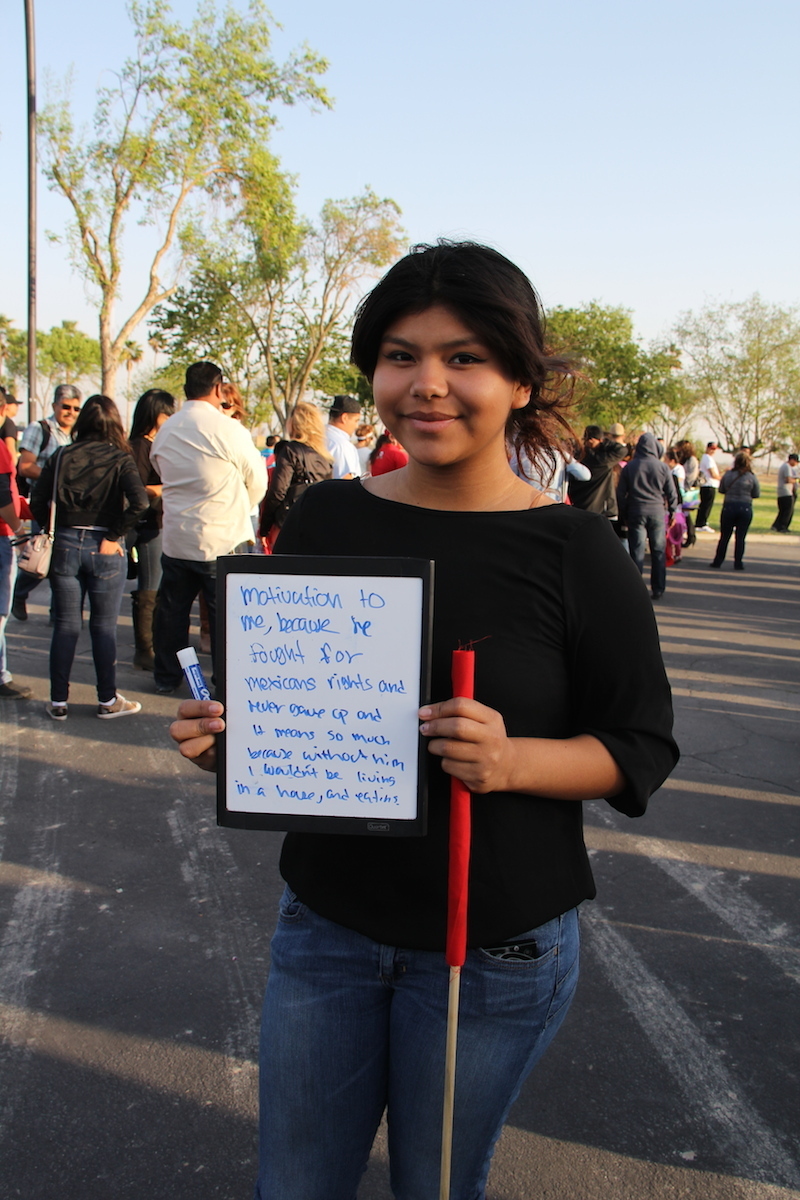
"Cesar Chavez is a Mexican who fought for our rights and succeeded. He means a lot to all Mexicans." — Rudolfo, 14
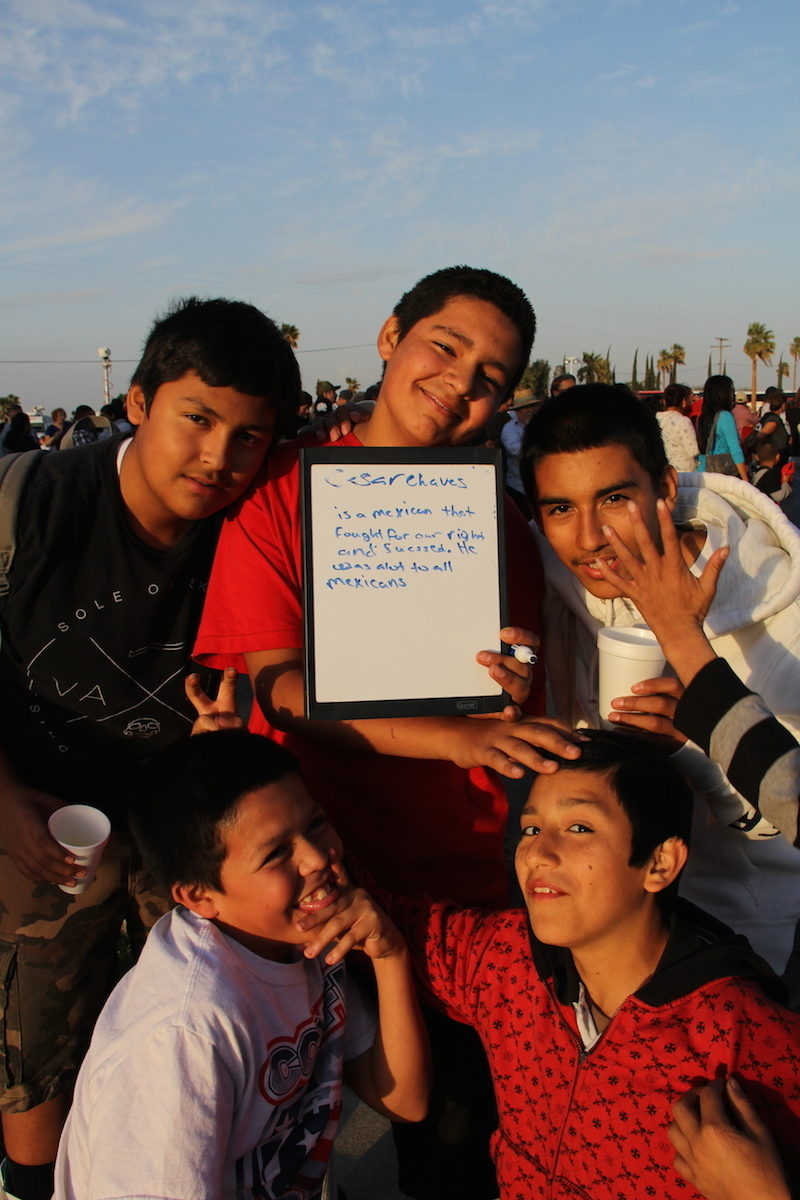
"An important man in the lives of all farm workers. He fought for us to get better working conditions, better salaries, and paid vacation time." — Rafael, Farm Worker
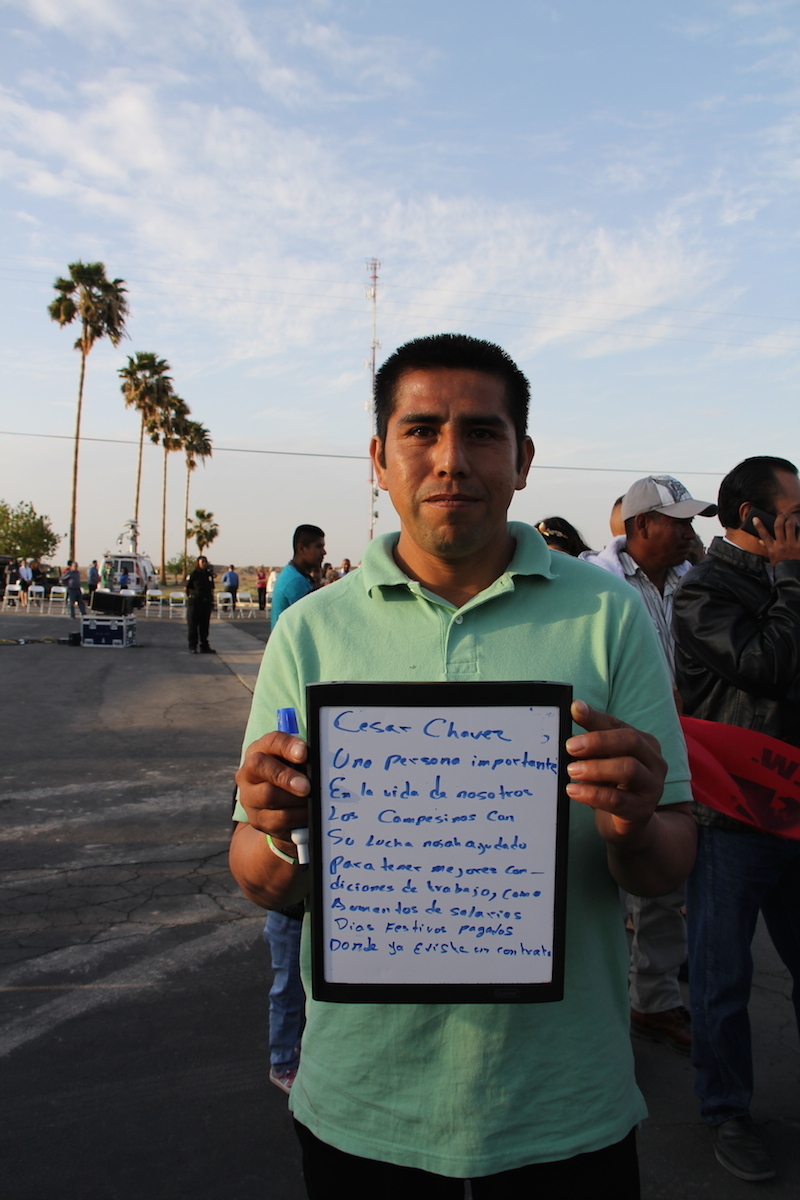
"Equality." — Lupita, 19
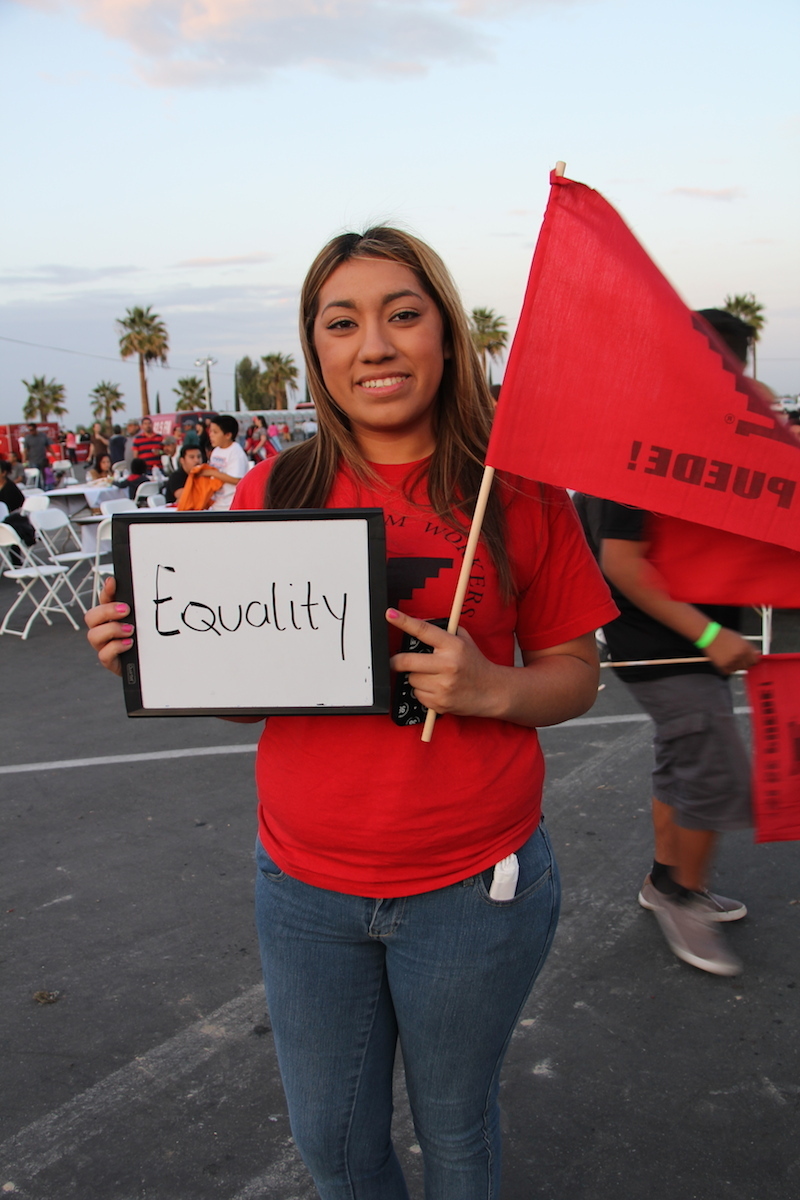
"Chavez was a leader, a man, and a father for all farm workers." – Josefina Flores, alongside other UFW Veterans
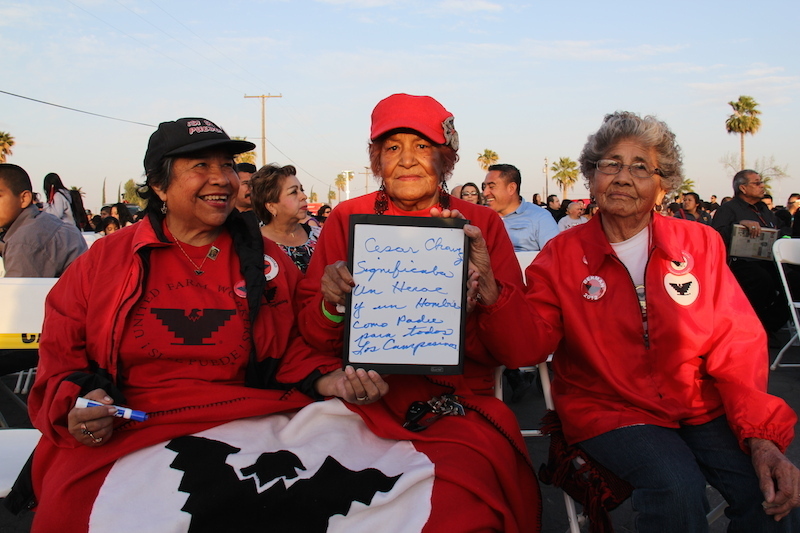
"Never give up! Si se puede!" — Paul Chavez and family, son and grandchildren of Cesar Chavez
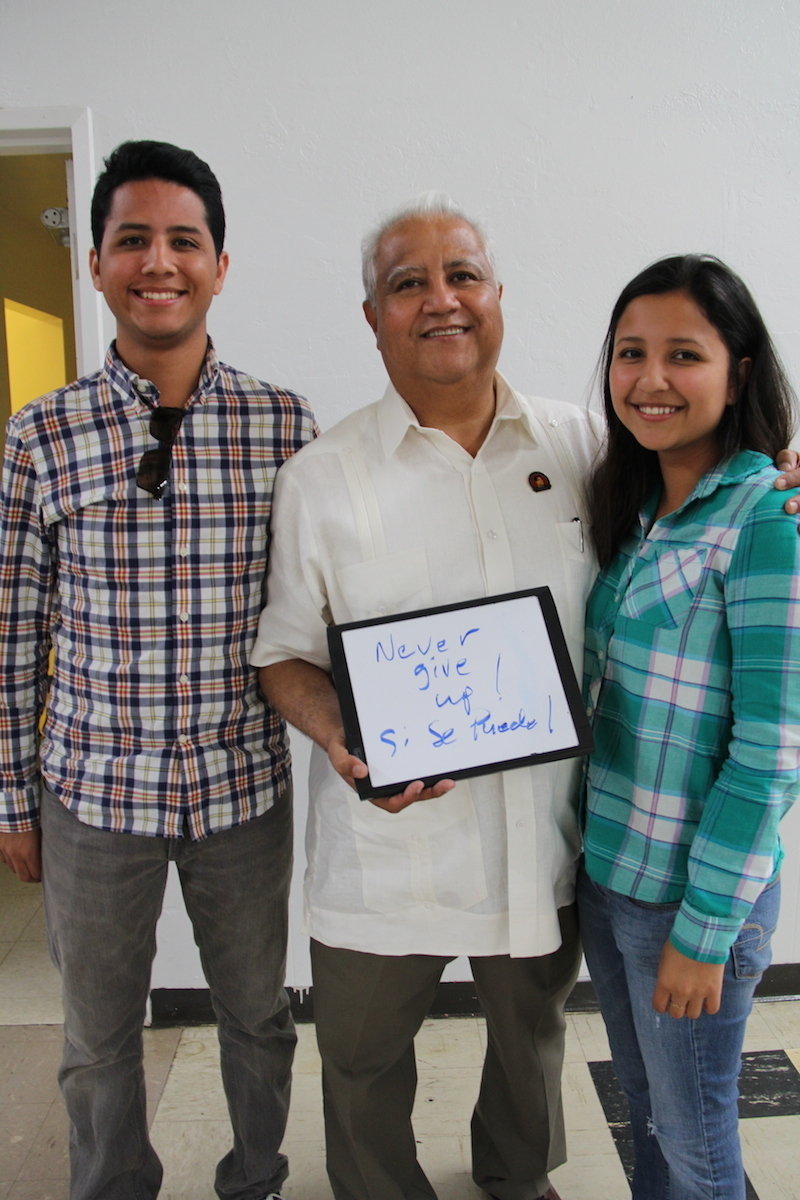
As the sun set and the seats were filled, people waved their red flags in the air.
The DJ announced a roll call of all the neighboring towns that were bussed in for the screening. People went wild.
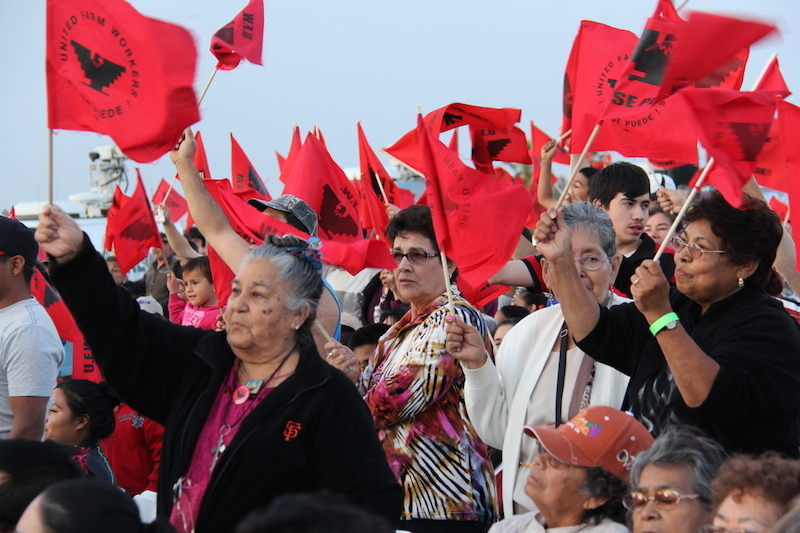
Someone mentioned Diego Luna's name and ran. This caused a bit of commotion.
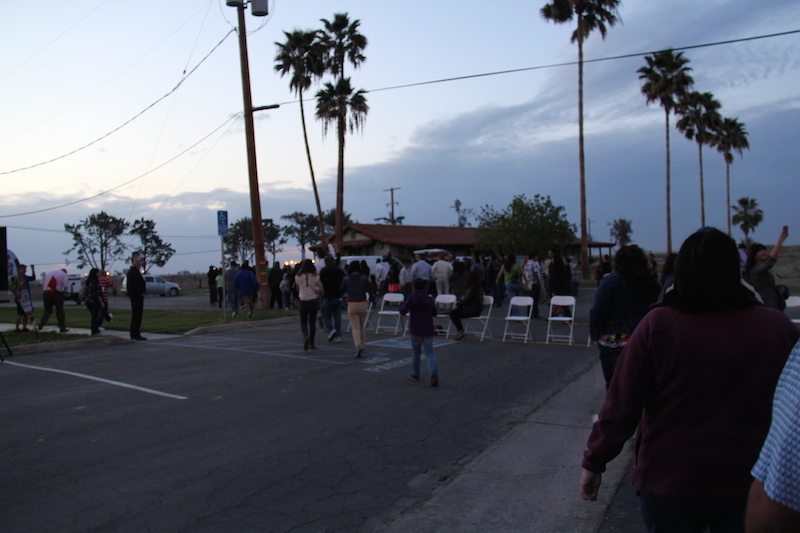
After the DJ calmed everyone down, Paul Chavez said a few words.
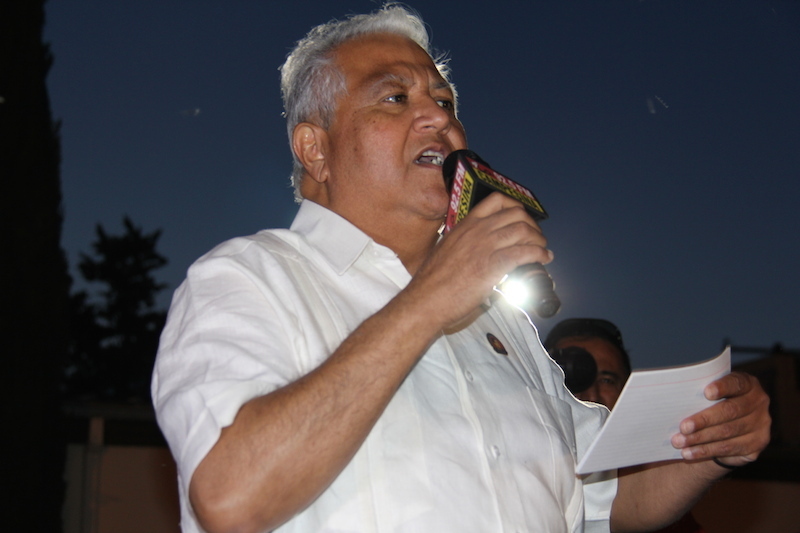
Finally, Diego Luna was introduced and spoke to the farm workers in attendance.
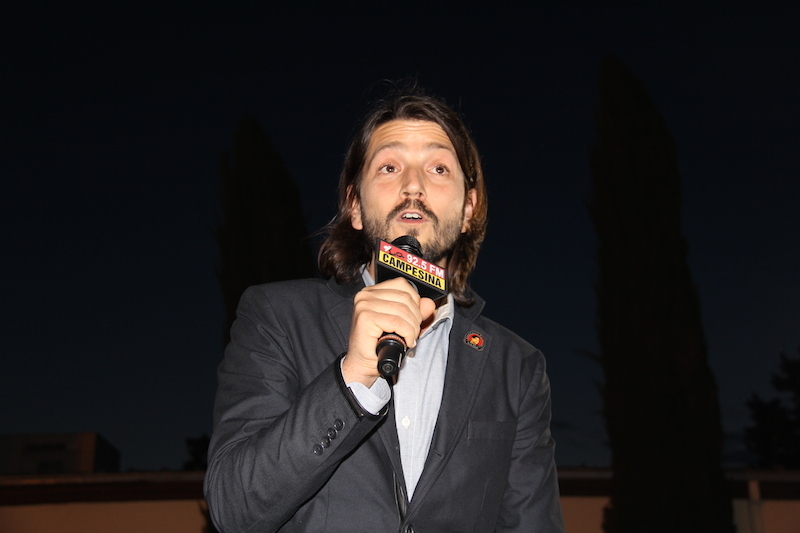
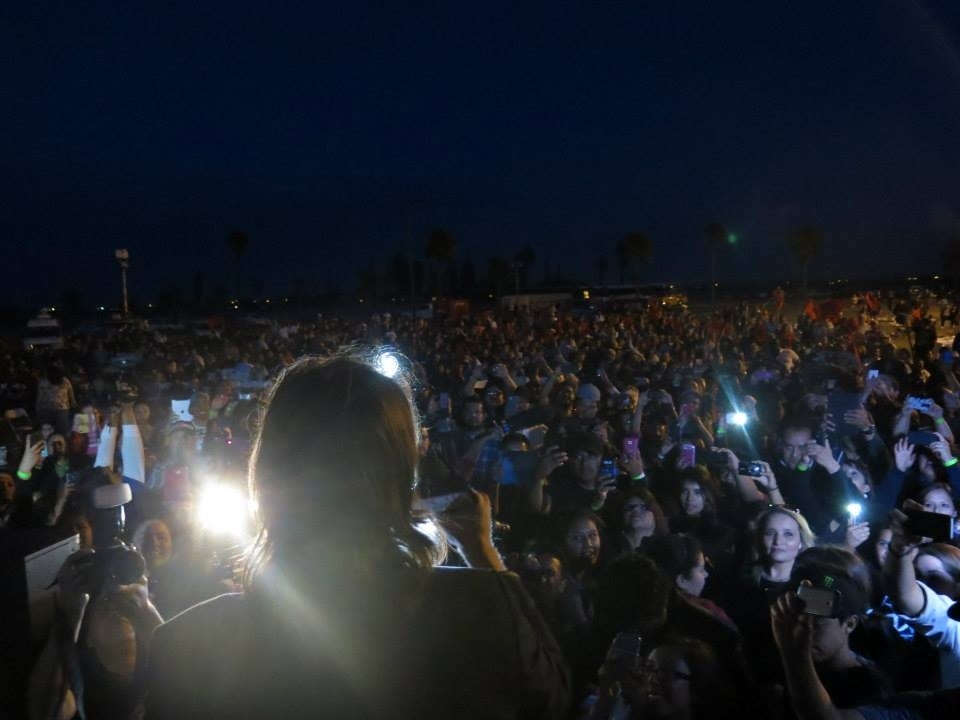
Diego then led everyone in a "¡SI SE PUEDE!" chant.
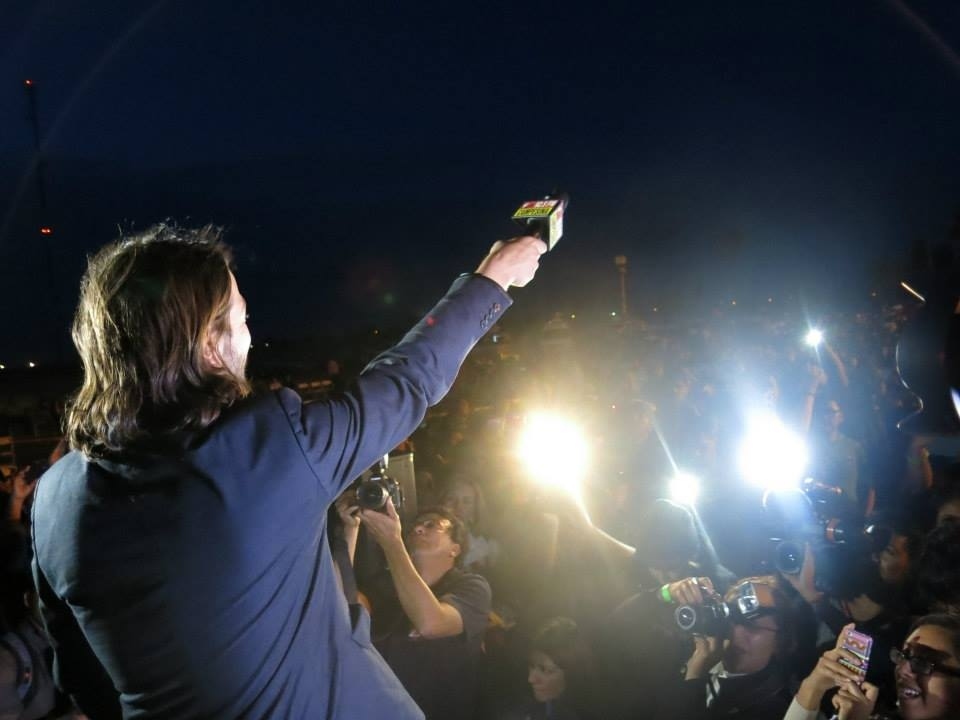
And then took a photo of the audience.

Then, a Spanish-dubbed version of the film was screened to more than 1,000 farm workers and their families.
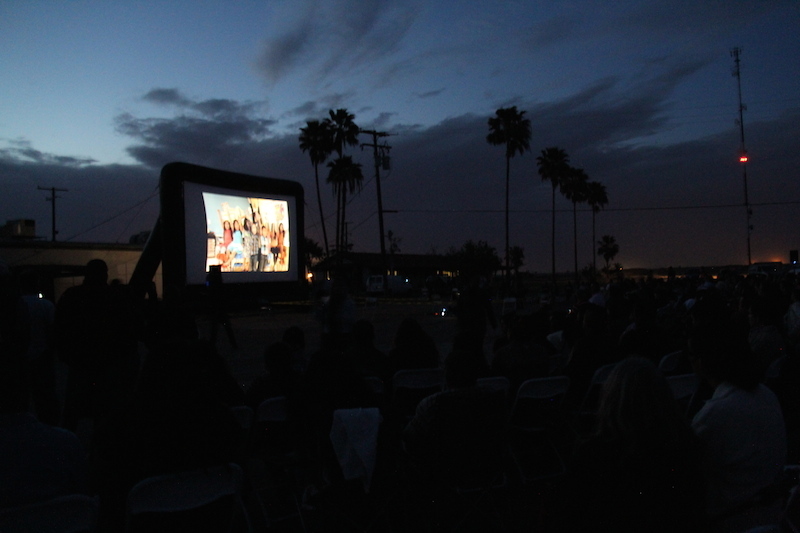
A tweet from the UFW summarizes this film in the most succinct way possible:
"It's not just about farmworkers or immigrants, it's about the Latino experience. It's an American story".@diegoluna_
There are plenty of reasons why people should go see this film. By the end of the night, I couldn't help but feel part of the campesino movement. This film did an extraordinary job of showcasing a side of America that desperately needs attention.
Paul Chavez INSISTED on taking a photo of me holding the white board, wanting to know what his father meant to me. The photo came out blurry, but I thought I should include it anyway.
"The first man I learned about in school who looked like me."
